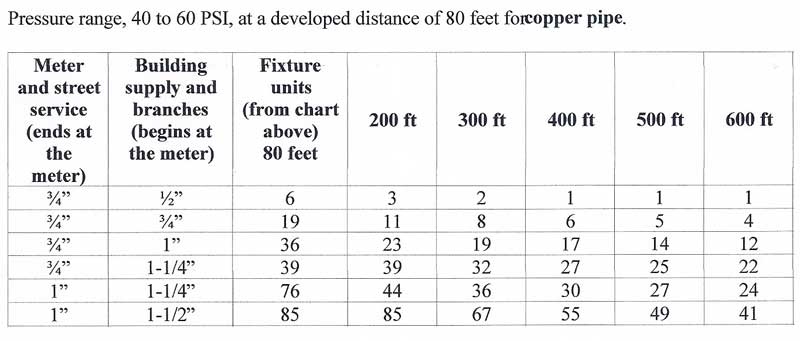Hi, I'm in the process of building a house, and am looking for recommendation for the right water service line size from the road. I'm up on a pretty good hill, about 13o' feet up from the meter, and 550 ft in length from meter to house. The municipality thinks I won't have to pump the water to the top,
they said it should have adequate pressure. I don't know what pressure will be at the meter. My contractor recommended 2" pipe from the meter to the house, while the guy trenching for the line recommended smaller, like 1" or less. From research I've done, the bigger pipe looks like it will handle it much better. My specs are: kitchen sink, 2 bathroom sinks, 2 toilets, 2 showers, laundry sink, washer, a couple of hoses outside.
they said it should have adequate pressure. I don't know what pressure will be at the meter. My contractor recommended 2" pipe from the meter to the house, while the guy trenching for the line recommended smaller, like 1" or less. From research I've done, the bigger pipe looks like it will handle it much better. My specs are: kitchen sink, 2 bathroom sinks, 2 toilets, 2 showers, laundry sink, washer, a couple of hoses outside.

